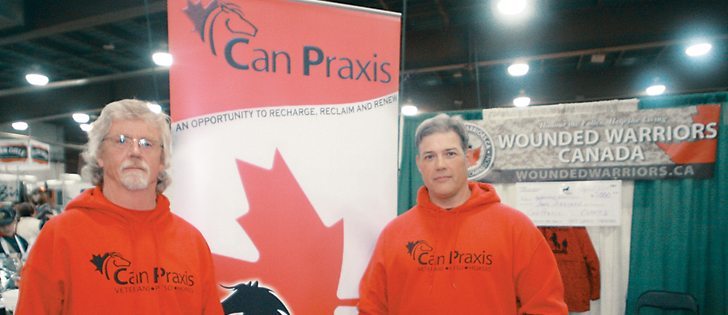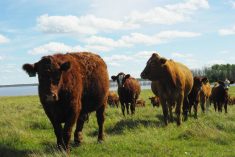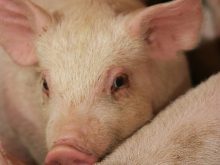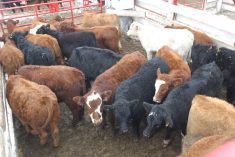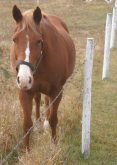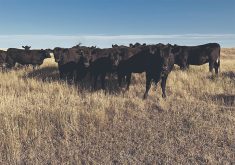Improve communication | Helps deal with post traumatic stress disorder
RED DEER — Communication between couples can be tough, but it often breaks down along with the marriage when one of the partners returns home from war with post traumatic stress disorder.
A new program based in Rocky Mountain House, Alta., uses horses to restart communication between soldiers and spouses and begin the healing process, said Steve Critchley, founder of Can Praxis.
“Using horses is a very gentle way to restart self confidence, self worth, self price and a relationship because everything you do with that horse is communication,” he said.
Read Also

Beef check-off collection system aligns across the country
A single and aligned check-off collection system based on where producers live makes the system equal said Chad Ross, Saskatchewan Cattle Association chair.
“If there is no communication, there is no resolution. If there is no talking, the veteran’s comfort zone gets smaller and smaller.”
Critchley said veterans often withdraw into depression and loneliness because of their inability to communicate.
Breaking the cycle of non-communication and teaching them how to have a conversation is how the healing starts, he said.
Critchley said 110 people have gone through the program since it began 14 months ago as a free program for veterans and their spouses. Most of the funding comes from the national Wounded Warriors program.
The program gets its name from “Can,” which stands for Canada and its can-do attitude, and “Praxis,” which stands for taking theory to practice.
Critchley spent 28 years in the military and started breeding Canadian horses after retiring.
He also continued to work in areas of conflict mediation and effective communication and eventually joined the two.
The couples, or veterans and someone who is significant to them, spend half the time in a classroom learning about communication and confidence. The rest of the time is spent with the horses.
Critchley and psychologist Jim Marland open the discussion by asking the couple a question and then watching the horse and the couple.
“Horses provide instant feedback to the veterans and their spouses on how to approach each other,” he said.
The three-day program teaches the couple communication skills to practice at home.
Critchley said the trauma experienced in war affects people differently and requires different therapies. After working with horses, the veteran is often more comfortable dealing with therapy.
He said Can Praxis is different from other programs because it includes the spouse.
Veteran Christian McEachern of Black Diamond, Alta., and his girlfriend took the course after he left the military.
“For me, it’s been helpful in my awareness of how to talk to people. A lot of army guys don’t beat around the bush, and you get yourself in trouble,” he said.
Army training prepares soldiers for life in the military but not necessarily how to cope as a civilian, said McEachern, who spent 15 years in the army and four years in cadets.
“A lot goes on in an army guy’s head,” he said.
“I’ll see a problem and already know how to fix it. To my girlfriend, I seem really impatient. For her, it’s really good to get an understanding of why I think like that.”
This August, McEachern will be riding his horse from Wainwright, Alta., to Jasper, Alta., with stops at the military bases in Wainwright and Edmonton to raise awareness and funding for the program.
Critchley said lack of funding is the biggest obstacle to offering the program to more veterans with PTSD and their families.
Participants are flown free to Rocky Mountain House from across Canada. Airfare costs the program $3,000 to $12,000 a month. There are no charges for the program.
This summer, Critchley will began phase two of the program and bring back veterans who participated in the initial work and teach them to ride and care for their horses.
Phase three will be to take veterans on three to four day pack trips into the mountains with their horses.



